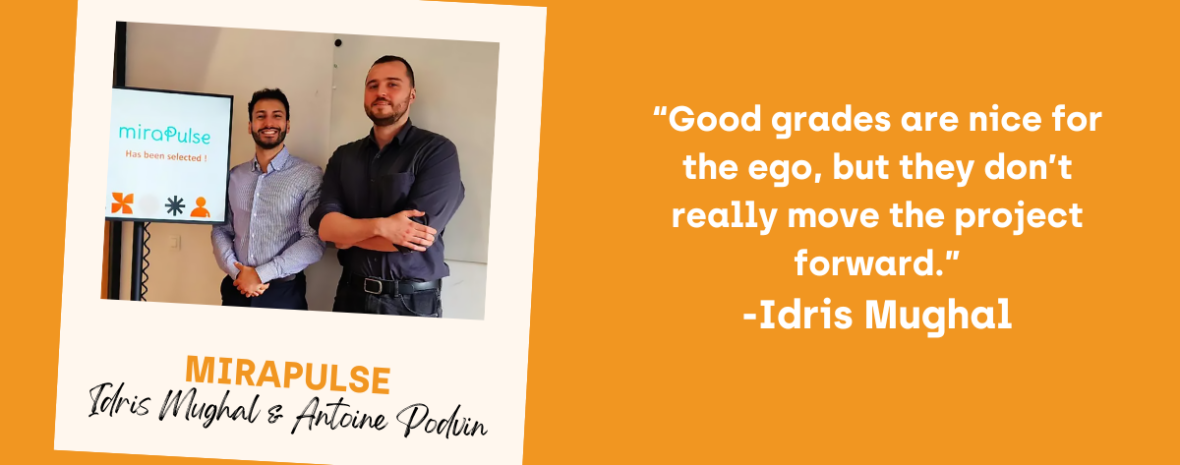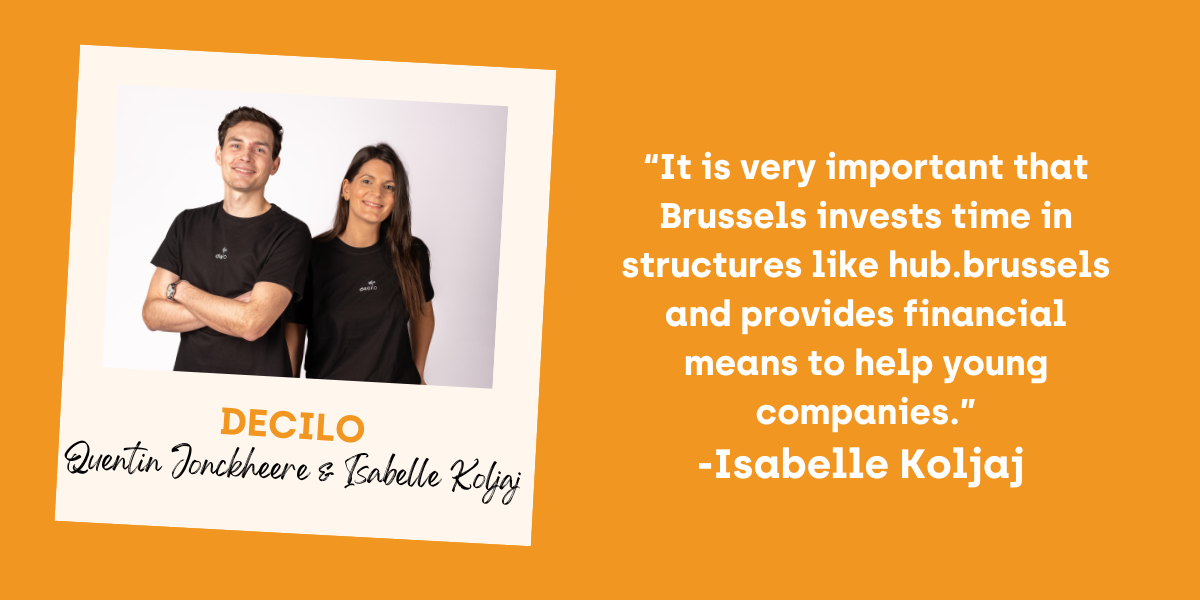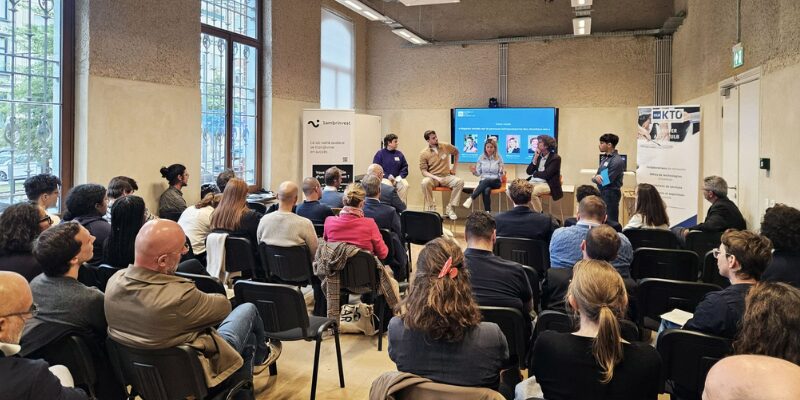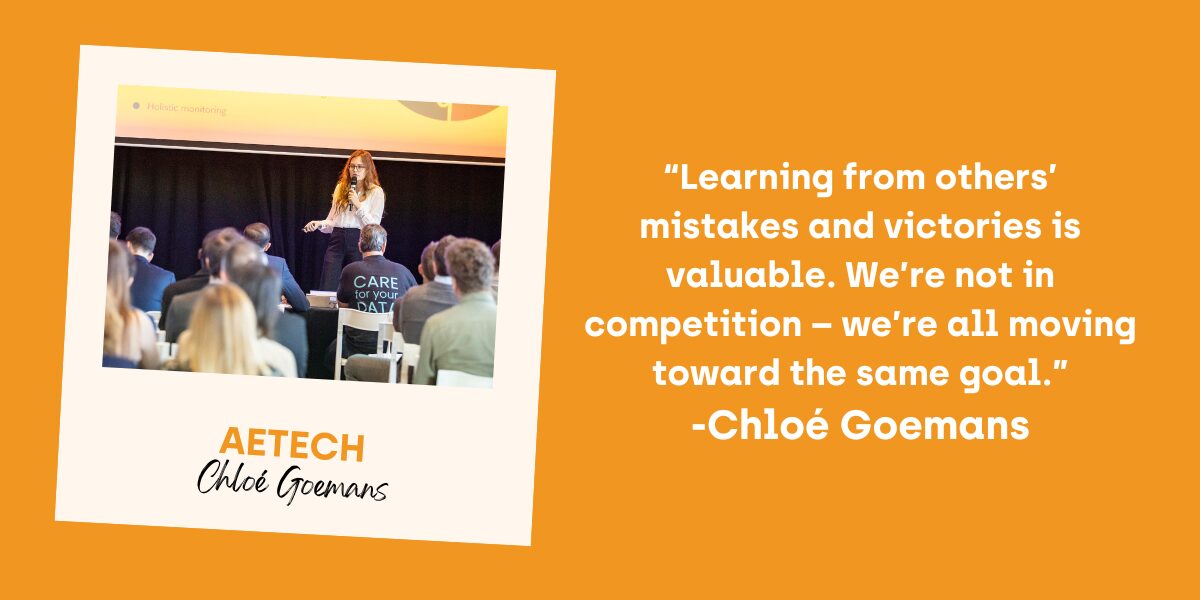Two young Brussels-based entrepreneurs, aware of the problem of menstrual pain experienced by so many women, created MIRAPULSE to help relieve it.
Menstrual pain is something most of us are familiar with. An estimated 10 to 15% of women suffer from pain so severe it can lead to fainting, hospitalizations, and deeply disrupt daily life. These pains affect not only the women themselves but also their families, workplaces, and social circles. Yet the subject remains largely taboo.
First steps at Solvay
Idris Mughal, co-founder of MIRAPULSE, has a different perspective:
“I grew up with my mother and sisters. Nothing related to menstrual hygiene was ever hidden at home, and I knew one of my sisters suffered a lot. It was only when I went to university that I realized this was a taboo topic!”
While studying business engineering at Solvay Business School, Idris moved away from women’s health issues for a while. Until his master’s degree, when he was selected to participate in a Triaxes thesis:
“It’s a multidisciplinary project where four students from different fields join forces to develop a technology to solve a real problem,” he explains. “I suggested menstrual pain, since there are still very few solutions.”
Despite initial skepticism, he convinced his teammates. Their project was graded highly, but Idris notes:
“Good grades are nice for the ego, but they don’t really move the project forward.”
Lifelong learning and partnership
That wasn’t enough to discourage him. Determined to make his idea real, Idris pursued the Advanced Master in Biotech and Medtech Ventures through Solvay Lifelong Learning. At the same time, he joined the lifetech cluster and the Medtech Accelerator.
“In short, I never stopped learning so I could develop the project.”
Idris soon found a co-founder in Antoine Podvin, a biomedical engineer also familiar with menstrual pain through his wife. Together, they built a network of key partners.
“I like to say MIRAPULSE is an ecosystem,” Idris smiles, “bringing together expert patients, renowned gynecologists, and specialized centers like the Endometriosis Clinic at Erasme Hospital and the Liège Endometriosis Center at CHC MontLégia.”
Co-construction with patients
MIRAPULSE’s device, EVA, is complex but builds on proven technologies.
“Intravaginal stimulation is already used, for instance, in pelvic floor rehabilitation,” Idris explains. “And transcutaneous electrical nerve stimulation (TENS) with small electrodes on the abdomen helps reduce pain, though with limited effectiveness and comfort. With gynecologists validating the concept and patients actively co-designing, we created a 2-in-1 solution: a menstrual disc that collects menstrual flow while also relieving pain.”
Looking ahead
Idris has been working full-time on MIRAPULSE for almost two years, while Antoine devotes half his time. Thanks to promising preliminary tests showing significant pain reduction, they remain optimistic about clinical development.
So far, they have secured €22,500 in pre-activity funding from Brussels Economy and Employment and are applying for further financing. Support from the lifetech cluster has been key:
“The Thursday meetups with fellow medtech entrepreneurs are invaluable,” Idris says, “as are the coaching sessions to validate strategies and unlock connections.”
The American dream
Looking forward, Idris and Antoine plan to launch EVA in the US around 2028–2029.
“It’s a larger market, more open to medtech, with a regulatory framework that sometimes allows faster access. American women also seem more comfortable than Europeans with menstrual cups, discs, and semi-invasive medtech solutions like ours. Starting there, then expanding back to Europe a year or two later, makes sense.”
Idris even plans to move to the US for the launch, while Antoine remains in Belgium.
A Belgian landscape full of potential
Meanwhile, development continues in Brussels.
“Belgium is unique with its three regions — Wallonia, Flanders, and Brussels — all competing to attract innovation,” Idris observes. “Medtech is booming everywhere and will keep growing. For us, staying in Brussels makes sense since our key partners are here, and we hope to benefit from more local support as we accelerate.”
website: https://www.mirapulse.com/




